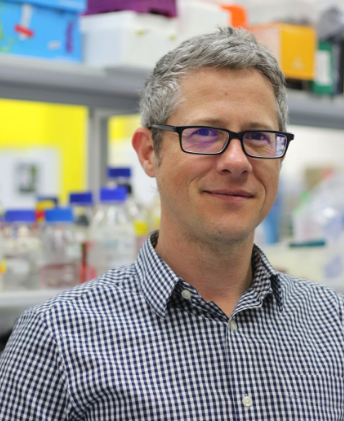Channels
Special Offers & Promotions
Leading Expert Discusses Gene-Editing Research at Free Public Lecture
Dr Shaun Cowley from the University of Leicester delivers Frank May Prize lecture

The lecture, delivered by Dr Shaun Cowley from the University’s Department of Molecular and Cell Biology, is free and open to the public and presented his latest research on gene regulation, examining how and why our bodies decide which genes should be switched on and which should be switched off in order to function correctly.
Dr Cowley and his team has spent the last nine years researching a family of enzymes called histone deacetylases (HDACs) which chemically modify histones - a type of protein - tightening their grip around genes, and thereby switching them off.
Dr Cowley said: “Individual cell types must decide which genes to switch on in order to function and then keep all of the remaining genes quiet. This is known as ‘gene regulation’. An effective method of deactivating the unwanted genes is to wrap them up in their own packaging material, a type of protein called ‘histones’.
“Histones take the 2 metres of DNA in each cell and package it into a nucleus only 10 microns wide, roughly the same thickness as a human hair. Histones, by their nature, hide DNA away and therefore physically regulate how the genes are read.
“To understand how each of the 18 HDAC enzymes present in mammalian cells work, we have used gene editing methods to create ‘knock-out’ cells and animal models in which the HDAC enzyme of interest has been inactivated. These ‘knock-out’ cells allow us to address the requirement for individual HDACs in cellular processes.”
The team’s research has shown that HDAC1 and 2 are essential for embryonic stem cells to grow and to differentiate into other tissue types, such as cardiac cells.
They have also found a role for HDAC1 and 2 in the generation of T-cells, a type of white blood cell necessary for fighting infection.
Dr Cowley added: “HDAC enzymes also represent an exciting medical opportunity because they are 'druggable'. Already, drugs which inhibit HDAC activity are being used in the clinic as anti-cancer agents, and are being further developed for their beneficial effects on dementia and anti-inflammatory properties. There is therefore a compelling applied as well as academic motivation for studying their function.”
The Frank May Prize was endowed by Dr Frank May MBE. The prize is based on evidence of research excellence during the previous two years and evidence of outstanding promise for the future. It is awarded in competition in the University of Leicester College of Medicine, Biological Sciences and Psychology.
To encourage and reward medical research Dr May has also established a biennial lecture given by a national or international speaker to an invited audience.
Dr May’s association with the University of Leicester dates back to 1982, when he was recommended to the University by the late Dr Mac Goldsmith and was appointed to the University Council in the 1980s. He is a patron of arts and music both at the University and throughout the City of Leicester. Over more than 20 years he has been Trustee of the Medical Research Foundation (Medisearch), set up in the 1970s to support research within the Leicestershire teaching hospitals and the Medical School. He is the first life President of the Medical Research Foundation. He has held a number of Home Office appointments. Dr May was awarded an MBE in 1994 and the Freedom of the City of Leicester in 2001.
Dr Cowley gave the Frank May Prize lecture, entitled ‘How to package your DNA: histones and the key to gene regulation’, on Monday 31 October at 5.30pm at the The Frank and Katherine May Lecture Theatre, Henry Wellcome Building, Lancaster Road.
more about university of leicester
Media Partners


